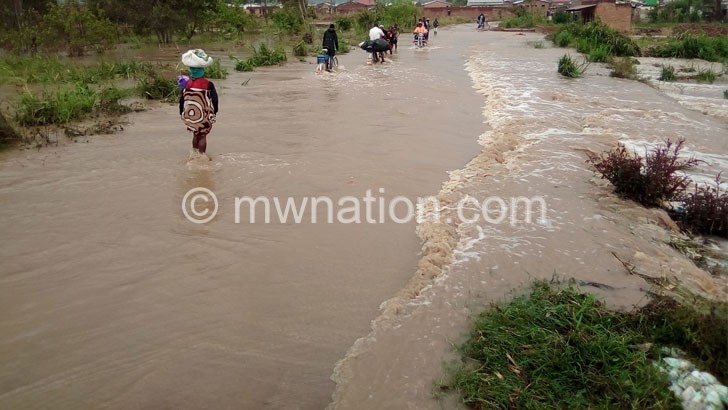Enviromental Dept touts district adaptation plans
Decentralised climateaction plans offer a solid launchpad for collective efforts and informationsharing to lessen impoverishing impacts of extreme weather shocks in ruralareas, a government official has said.

Speaking during climate talks in Katowice, Poland, director of environmental affairs Tawonga Mbale said all 28 districts in the country require district adaptation plans which have transformed the way Nkhata Bay, Ntcheu and Zomba district councils are combating effects of climate change.
The Department of Environmental Affairs, with funding from the United Development Programme (UNDP), rolled out the five-year Adapt Plan project in which the three councils have made decentralised plans based on prevailing realities, priorities and national policies.
Mbale said the district adaptations plan could be replicated in the remaining districts to ease the sharing of information and coordination of organisations working in the agency slowed by some actors who work in isolation.
She stated: “In Malawi, we have district development plans. A lot of planning is happening at district level.
“In three districts, we are working with district councils to come up with district adaptation plans based on their unique vulnerabilities and needs. These plans also feed in the national adaptation plan and Malawi Growth and Development Strategy [MDGS III]. This can be replicated by other districts not reached by the pilot phase.”
Mbale was on the same panel as representatives of governments of Ivory Coast, Bhutan and Mongolia when she spoke of benefits of the Adapt Plan.
She stated that putting district councils at the centre of expanding efforts to improve livelihoods frequently disrupted by floods, drought, hunger and other effects of climate change creates vital entry points for change agents as well as improved climate intelligence and action.
“With a coordinated district approach, it is easy to know who is the worst hit, which organisation is working where and which institution is responsible for what. This has improved linkages between government, district councils and all organisations working in the sector which requires greater regulation,” she said on Friday.
At least 25 000 people from all continents are meeting in the coal-rich city of Katowice for high-level negotiations to churn out guidelines for the Paris Agreement.
Malawi is among 197 nations that signed up to the 2015 climate accord sealed in Paris, France, to reduce carbon emissions and global temperature rise to below two degrees Celsius.
During the ongoing talks, the country has taken sides with the Africa Group and G77 plus China streams to demand greater funding for climate action.
The insistence on increased funding for countries faced with “special circumstances” has unsettled some superpowers, with the European Union demanding a win-win rulebook which does not benefit developing countries like China and South Africa at the expense of least developed countries which suffer the worst impacts of climate change.





